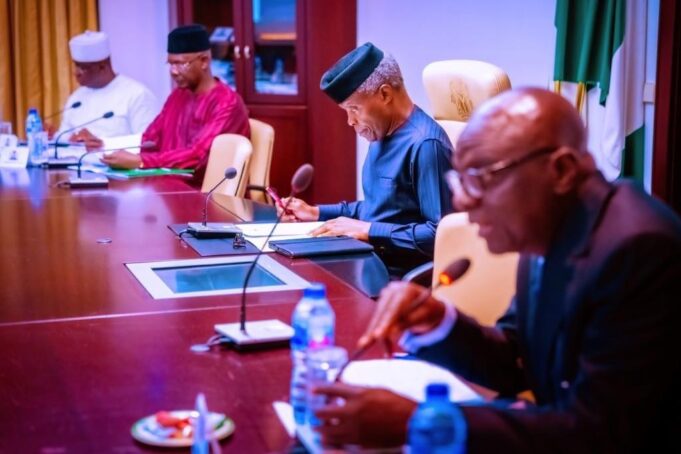No fewer than 2 million vulnerable Nigerians have been impacted by projects implemented under the Federal Government’s National Poverty Reduction with Growth Strategy (NPRGS) in 2022.
The NPRGS made the disclosure in a report presented at its Steering Committee meeting chaired by Vice President Yemi Osinbajo at the presidential Villa in Abuja on Wednesday, April 12.
According to a statement issued on Thursday by the Senior Special Assistant to the Vice President on Media and Publicity, Laolu Akande, the NPRGS report indicated that about 1.6 million smallholder farmers were impacted under the Agriculture for Jobs Plan.
“Besides, 13,000 youths have been trained under a Technical and Vocational Education and Training programme in six states comprising Lagos, Ogun, Enugu, Gombe, Kaduna and Nasarawa, while arrangements are underway to provide similar training for 2000 beneficiaries in Edo State.
“Equally, more than 8,000 Nigerians were employed in rural roads construction under the Rural Roads programme which built 40 rural roads in 120 communities, covering about 57.3 km across the country,” it noted.
The report presented by the Minister of State, Budget and National Planning, Clem Agba, showed that with the release of N50 billion, programmes that had achieved 100 completion included Agriculture for Food and Jobs Plan (AFJP) and Construction of Rural Roads, among others.
READ ALSO: NBS: Nigerians imported N18.12trn cooking oil, meat, others in 7 years
“The total number of direct beneficiaries of the implemented programmes currently stands at 1.8 million vulnerable Nigerians and a total of 9,527 Nigerians have also been directly employed through the implementation of the programmes so far,” the NPRGS report added.
Akande stated that the committee also approved N250 billion for the execution of projects for the year 2023 at the meeting.
The Vice President’s spokesman said the report showed that projects scheduled for implementation under the NPRGS for the year included the provision of 100,000 homes for low-income earners which would create 1 million jobs directly and indirectly.
He listed others to include the expansion of energy access by providing 1,200 solar street lights in rural communities and six mini-grids for high-capacity productive farming under the Solar Naija Programme.
“Creation of 4.5 million direct and indirect jobs through the Rural Roads programme which targets to connect about 750 rural markets.
“Provision of N9 billion support for over 1.6 million vulnerable smallholder farmers for the 2023 wet season farming under the Agriculture for Jobs Plan.
“The expansion of the National Social Register with additional 3 million households,” he said.
Speaking to State House correspondents after the meeting, Nasarawa State Governor, Abdullahi Sule, who is also the Co-Chair of the Technical Working Group for the Committee, said though implementation has not reached expected levels, efforts are underway to touch each of the targeted 15 areas of implementation.
Sule stated that the meeting was to review the implementation and update on the spending on the projects so far and approval for 2023 projects for the same scheme.
“Based on what was received from the co-chair of the Technical Working Group, over N50 billion have been spent so far.
“The performance so far hasn’t reached the level we expected. But nearly every aspect of the 15 areas targeted is being implemented in one way or the other,” the governor said.
Other members of the Steering Committee at the meeting were the Minister of Agriculture and Rural Development, Mohammad Abubakar; Minister of Health, Dr Osagie Ehanire; and the Minister of Labour and Productivity, Dr Chris Ngige, who joined the meeting virtually.
- Tinubu: I removed fuel subsidy to stop Nigeria from bankrupt - April 28, 2024
- Tinubu to Samsung: Nigeria, best place for tech investment - April 28, 2024
- Nigeria secures $600m investment with Danish shipping coy Maersk - April 28, 2024










